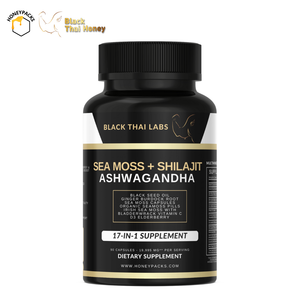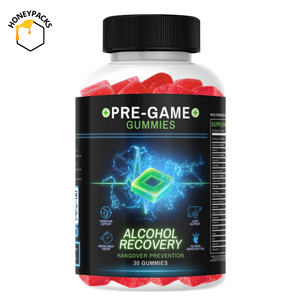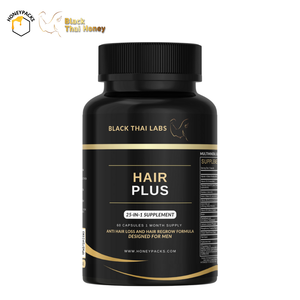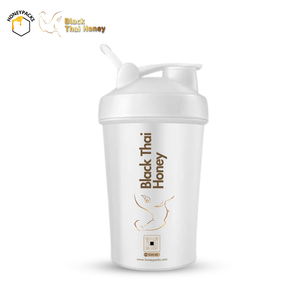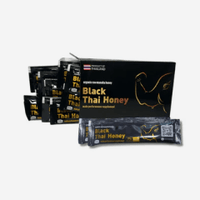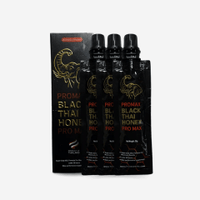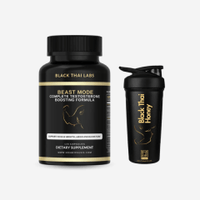Is Ginseng Safe for Kidneys | Benefits, Risks, and Uses
Ginseng may benefit kidney health in some cases, but it can pose risks for those with kidney disease or transplants due to drug interactions and immune effects. Its safety depends on dosage, product purity, and individual health conditions. Always consult a doctor if you have kidney concerns.
Ginseng is one of the most popular herbal supplements in the world, praised for boosting energy, enhancing circulation, and supporting male vitality. But could it affect my kidneys? That’s the reason we are putting this article out.
Whether you’re using ginseng for performance, managing kidney concerns, or simply trying to stay sharp without synthetic stimulants, knowing how it interacts with your body, especially your kidneys, is necessary.
In this article, we’ll walk through:
-
Who should be cautious about using ginseng
-
When ginseng might help or harm kidney function
-
The truth about food-based ginseng, supplements, and hidden ingredients
-
How clean sourcing and formulation matter and how Honey Packs handles it
The Benefits of Ginseng That Draw People In

For centuries, ginseng has been trusted as a natural energy tonic. Today, it’s especially popular among men seeking to boost stamina, sharpen focus, and support hormonal balance, without reaching for synthetic pills or caffeine-loaded quick fixes. At the core of its power? A potent ability to enhance nitric oxide production, which helps relax blood vessels, improve circulation, and support physical performance, whether in the gym, the office, or the bedroom.
One of ginseng’s standout compounds is ginsenoside Rg3, a rare, heat-activated molecule found primarily in processed Panax ginseng. Rg3 is linked to improved oxygen delivery, reduced oxidative stress, and enhanced blood flow, making it a powerful ally for men looking to feel more energized, focused, and ready to perform. It helps your body function more efficiently at the cellular level.
That’s why ginseng is a cornerstone ingredient in elite wellness products like Honey Packs. We use ginseng extract as part of a synergistic formula alongside black ginger and L-citrulline, designed to naturally support nitric oxide levels and stamina. The result is clean, crash-free energy and blood flow support that helps you feel your best, without taxing your kidneys or relying on synthetic stimulants. It's performance rooted in nature and reinforced by results.
The Flip Side: Can Ginseng Harm Your Kidneys?
While ginseng offers amazing benefits, it’s not universally safe, especially for those managing kidney-related conditions. Like any powerful herb, context matters. Your dosage, your health status, and the quality of the product you’re taking all shape whether ginseng supports or stresses your kidneys.
When Ginseng Might Be Risky
In one reported case, a woman developed acute kidney injury and toxic hepatitis after consuming ginseng alongside alcohol. Dehydration appeared to amplify the risk, concentrating the herb’s compounds in her system and overwhelming both the liver and kidneys.
That incident underscores an often-overlooked factor, which is hydration. If your kidneys are already under stress, or if you’re taking other medications, dehydrated, or using ginseng in high doses, the risks increase. Even something as simple as ginseng-infused food or tea may raise concerns. That’s because your body doesn’t always distinguish between medicinal and culinary sources, especially when you’re immunocompromised or in recovery.
Transplant Patient Red Flags
Ginseng’s immune-boosting properties can make it a no-go for kidney transplant recipients. These patients often rely on immunosuppressant medications to prevent organ rejection. Ginseng, by enhancing immune function, could counteract these drugs, posing a serious and very real risk.
Some transplant patients have been specifically cautioned against even mild or occasional ginseng use. This isn’t just a theoretical concern. Clinical teams in some hospitals and transplant centers explicitly include ginseng on their “do not take” lists. The fear is that even small exposures, from supplements, meals, or tonics, might trigger immune activity that places a new kidney in jeopardy.
Contamination & Labeling Issues
Even if ginseng itself is safe for certain individuals, the supplement market is notoriously inconsistent. The FDA has warned consumers about tainted products, including one labeled “Ginseng for Reinforcing Kidney,” which secretly contained sildenafil, the active drug in Viagra.
Beyond hidden pharmaceuticals, ginseng supplements may also contain heavy metals like arsenic or lead, especially those sourced from poorly regulated manufacturers. That’s a big problem for people with reduced kidney function, who can’t filter toxins effectively. And because herbal supplements aren’t required to prove purity or potency before going to market, even diligent label-readers may unknowingly ingest harmful compounds.
So, if you're managing kidney health, the biggest threat isn't always ginseng itself, it's what's hiding in or around it.
When Ginseng Might Be Helpful to the Kidneys
Despite the cautions, there are situations where ginseng, especially in its processed forms, has shown protective effects on kidney health, particularly in controlled, research-backed environments.
Protective Effects in Diabetic Models
Studies on heat-processed Panax ginseng have demonstrated a reduction in oxidative stress and accumulation of harmful advanced glycation end-products (AGEs) in diabetic nephropathy. In these models, compounds like ginsenoside Rg3 and maltol appear to shield kidney tissue by enhancing antioxidant defenses and improving microcirculation.
This suggests that, under the right conditions and in the right doses, ginseng could play a supportive role for individuals managing metabolic conditions that put strain on the kidneys. However, it's worth noting that most of this evidence comes from animal studies, not large-scale human trials, so while promising, the research isn’t yet definitive.
Ginseng's Role in Clean, Transparent Formulas
When ginseng is used as part of a thoughtfully formulated supplement, it may offer its benefits without the risks, especially for healthy individuals. That’s how we approach it at Honey Packs.
Our formula includes ginseng alongside black ginger, L-citrulline, and other natural compounds that work synergistically to support blood flow, energy, and hormonal balance. Instead of megadosing or isolating one herb, we focus on balanced, transparent combinations, because results should come from smart science, not guesswork.
When responsibly dosed and paired with clean co-factors, ginseng boosts libido and supports whole-body vitality, including cardiovascular and hormonal health, without placing undue stress on your kidneys. That’s the kind of integrity your body deserves.
Safe Usage Tips for Ginseng If You’re Kidney-Conscious
If you’re going through kidney challenges, but still want the benefits ginseng can offer, it’s not about banning the herb altogether. It’s about being intentional with how and what you take. Here are the smart, body-aware practices we recommend for men who want energy and performance support without compromising their kidney health:
Choose third-party tested, transparent formulas
Don’t settle for mystery blends or vague labels. Go with products that list every ingredient and dosage clearly, and are verified for purity by independent labs. It’s the only way to know you’re not unknowingly ingesting something that could harm your kidneys.
Avoid use when you’re ill, dehydrated, or on immunosuppressants
Ginseng affects circulation, immunity, and metabolism, all of which can shift dramatically during illness. And if you’ve had a transplant or are on medications that affect immune function, ginseng’s immune-stimulating properties can interfere dangerously.
Start small, and track your body’s response
Everyone’s tolerance is different. Even if you’re healthy, your kidney filtration rate, hydration levels, and diet can change how ginseng affects you. Begin with a low dose and note any changes in blood pressure, urination, or overall energy.
Don’t pair ginseng with alcohol or unknown stacks
Alcohol can magnify the impact of herbal compounds, increasing your risk of liver and kidney stress. Stacking ginseng with other stimulants or unknown herbal mixes could create unexpected side effects or overload your detox pathways.
Hydration is non-negotiable
Ginseng can act as a mild diuretic, which means it can increase fluid loss. If you’re not staying hydrated, especially during exercise or warm weather, you’re placing extra strain on your kidneys. Always drink plenty of water when using any performance supplement.
Honey Packs builds these principles into our product philosophy. That means clean sourcing, clinical doses, and complete transparency, because long-term vitality is never worth compromising your health for short-term hype.
Final Take: Is Ginseng Safe for Kidneys?
Ginseng isn’t inherently dangerous, but like any potent herb, its impact hinges on your individual health, the medications you take, and how pure and balanced the product is.
For healthy men using third-party tested, well-formulated ginseng products, moderate use can be both effective and kidney-safe. When paired with ingredients like black ginger and L-citrulline, as in Honey Packs, it can help boost circulation, stamina, and confidence without pushing your system too hard.
But for kidney transplant recipients, CKD patients, or anyone on immunosuppressants or diuretics, ginseng use carries more risk. In these cases, it’s always safer to err on the side of caution or complete avoidance and consult with your doctor before making it part of your routine.
If you’re going to supplement with ginseng, your kidneys work hard enough, don’t add uncertainty to the mix.
Choose trusted formulas like Honey Packs, where every ingredient is:
-
Clearly labeled
-
Clinically dosed
-
Backed by third-party testing
-
Free from synthetic fillers or hidden stimulants
Because your energy, stamina, and performance shouldn’t come at the cost of your long-term health. You deserve to feel strong, sharp, and in control, naturally.
FAQ
Is Korean Ginseng Worse Than American Ginseng?
Not necessarily, but they are different. Korean (Panax) ginseng tends to be more stimulating and potent, while American ginseng (Panax quinquefolius) is generally considered milder and more calming. This matters because the body’s response, especially for those with sensitive kidneys, can vary based on the species, the preparation (raw vs. steamed), and your own biology. If you’re aiming for kidney-friendly performance support, start with low doses and pay close attention to how your body responds.
Can I Take Ginseng If I Have CKD?
Chronic kidney disease doesn’t automatically rule out ginseng, but it does require caution. One issue is that American ginseng contains potassium and phosphorus, which some CKD patients need to limit. More importantly, the potential for drug interactions, especially with blood pressure or diuretic meds, means you should always run it by your nephrologist. Even natural herbs can have very real biological effects.
What If I’m Not on Dialysis? Is It Still Risky?
Yes, even pre-dialysis patients can experience complications from herbal supplements. Your kidneys are already under pressure, and ginseng’s diuretic effects, blood-thinning properties, or interaction with meds could increase that strain. Safe use depends on product purity, dose, and how your body processes herbal compounds.
Why Does My Doctor Say No, But My Friend Said It’s Fine?
Supplement safety isn’t one-size-fits-all. Doctors tend to err on the side of caution, especially for transplant recipients or patients with complex medication regimens. Your friend might tolerate ginseng with no issue, but that doesn’t mean your body will react the same way. Differences in medication, immune status, and kidney function all impact safety.

